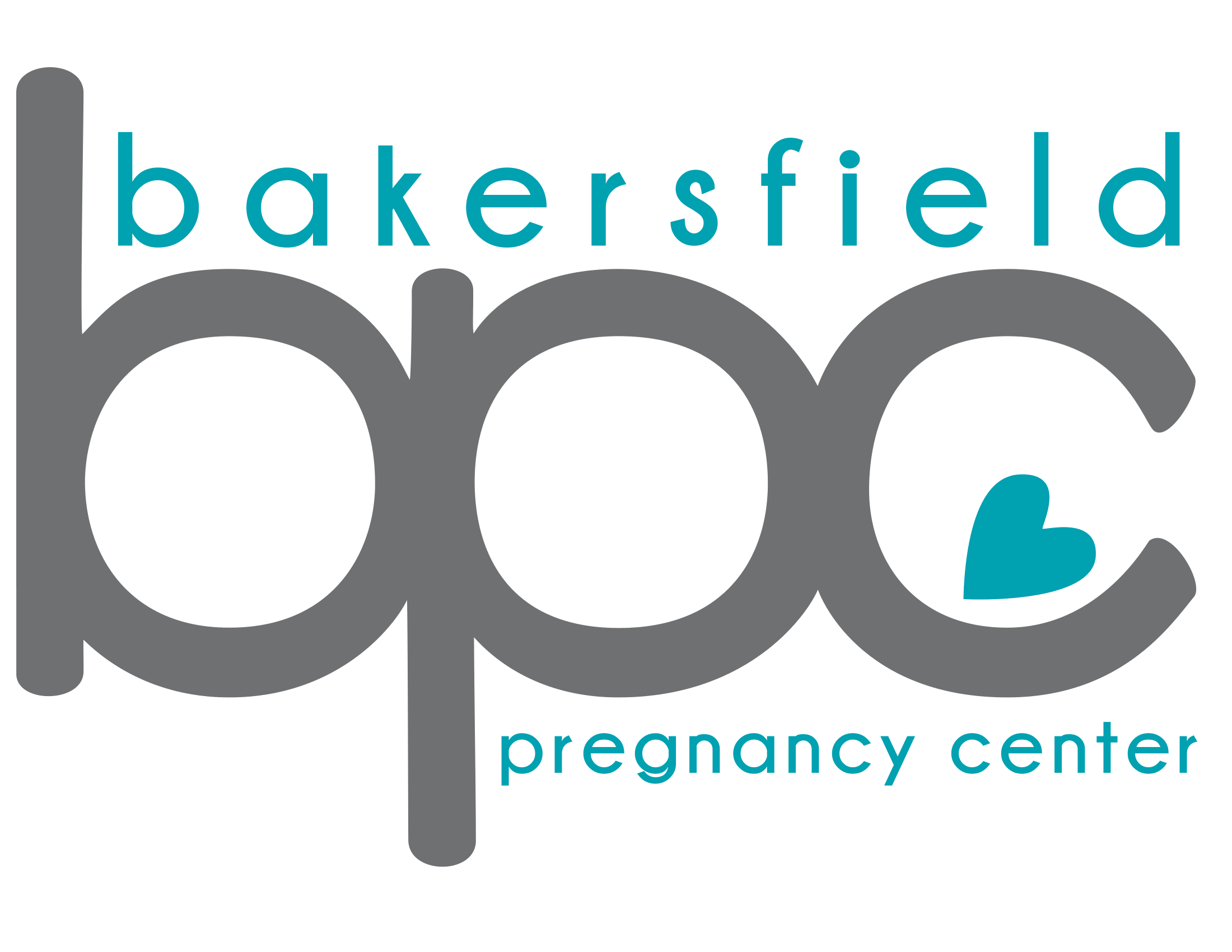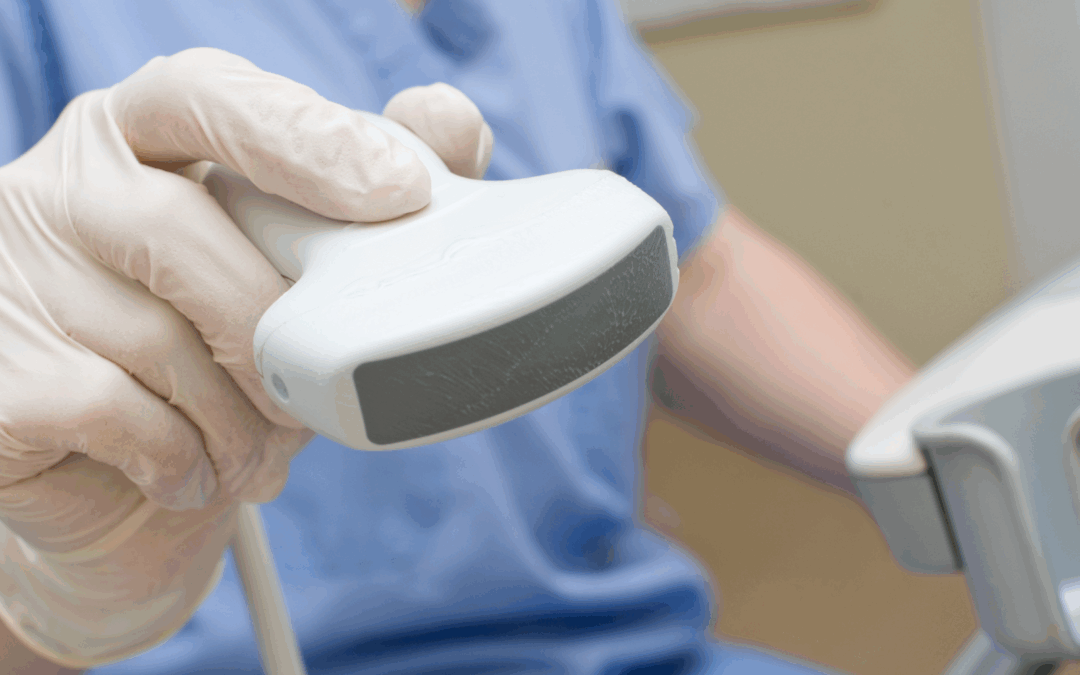Facing an ectopic pregnancy can be overwhelming, especially if it’s your first pregnancy. You might be asking questions like:
What are my treatment options? Will I be okay? Can the fetus survive an ectopic pregnancy?
At Bakersfield Pregnancy Center, we’re here to educate, empower, and support women navigating unplanned pregnancies, including ectopic pregnancies. In this guide, we’ll break down what an ectopic pregnancy is, its symptoms, warning signs, and how to develop a treatment plan with your healthcare provider.
What is an Ectopic Pregnancy?
An ectopic pregnancy happens when a fertilized egg implants outside the uterus, most commonly in the fallopian tubes (known as a tubal ectopic pregnancy), but also in the abdominal cavity or on an ovary.[1]
Unlike a normal pregnancy, an ectopic pregnancy cannot progress to term because the fetus cannot survive outside the uterus. For the mother, it’s a serious, life-threatening condition requiring immediate medical attention.[2]
Common Symptoms of Ectopic Pregnancy
Early on, ectopic pregnancy symptoms may mimic a typical pregnancy, including[3]:
- Missed period
- Nausea
- Breast tenderness
A pregnancy test will show positive results.[4] However, as the condition advances, distinct warning signs emerge. Look out for these early ectopic pregnancy symptoms[5]:
- Vaginal bleeding
- Lower abdominal, pelvic, or back pain
- Weakness or dizziness
Seek medical help immediately if you experience[6]:
- Shoulder pain (from blood leaking out of the fallopian tube)
- Severe pelvic or abdominal pain with bleeding
- Fainting or extreme lightheadedness
Without treatment, the growing fertilized egg can rupture the fallopian tube, causing dangerous internal bleeding in the abdomen.[7] This can lead to shock, fainting, and the need for emergency surgery.[8]
How is an Ectopic Pregnancy Diagnosed?
Early diagnosis is critical to prevent complications like a ruptured fallopian tube.
Diagnosing an ectopic pregnancy starts with confirming pregnancy through a blood test to measure hCG levels.[9] Your doctor may then use:
- A transvaginal ultrasound to pinpoint the pregnancy’s location.[10]
- An abdominal ultrasound to check for internal bleeding.[11]
Ectopic Pregnancy Treatment Options
Once diagnosed, collaborate with your healthcare provider to create a tailored treatment plan. Options depend on the timing and severity of your condition:
- Medication: If detected early with no unstable bleeding, a drug like methotrexate may be prescribed to stop fetal growth and end the pregnancy. Follow-up visits will monitor hCG levels to confirm the pregnancy has ended.[12]
- Surgery: A salpingectomy removes both the ectopic pregnancy and the ruptured fallopian tube. A salpingostomy removes only the ectopic pregnancy, preserving the fallopian tube if it hasn’t ruptured.[13]
The good news? About 85% of ectopic pregnancies are caught before rupture, reducing the need for invasive surgery.[14] Early detection is key to a safer outcome.
Is Ectopic Pregnancy Removal Considered an Abortion?
A common question is whether ectopic pregnancy treatment is considered an abortion. The answer is no. The CDC defines abortion as a procedure to end an intrauterine pregnancy, which doesn’t apply to ectopic cases.[15]
Additionally, there are no abortion laws that would prohibit women from receiving care for ectopic pregnancies.
Free Ultrasounds in Bakersfield, California
You don’t have to navigate this alone. At Bakersfield Pregnancy Center, our compassionate team provides free urine pregnancy tests and ultrasounds and a safe space to get answers.
Don’t delay—call us at (661) 326-1907 or schedule an appointment online today
This article is for informational purposes only. Bakersfield Pregnancy Center does not provide treatment for ectopic pregnancy, only free pregnancy tests and ultrasounds to confirm the state of your pregnancy. Upon the confirmation of the ectopic pregnancy, please meet with your primary healthcare provider as quickly as possible to receive treatment.
Sources
- Ectopic Pregnancy – Symptoms & Causes. Mayo Clinic. (2022, March 12). https://www.mayoclinic.org/diseases-conditions/ectopic-pregnancy/symptoms-causes/syc-20372088
- See source #1.
- See source #1.
- See source #1.
- Ectopic Pregnancy. Cleveland Clinic. (2023, January 18). https://my.clevelandclinic.org/health/diseases/9687-ectopic-pregnancy#symptoms-and-causes
- See source #1.
- See source #1.
- See source #1.
- Ectopic Pregnancy – Diagnosis & Treatment. Mayo Clinic. (2022, March 12). https://www.mayoclinic.org/diseases-conditions/ectopic-pregnancy/diagnosis-treatment/drc-20372093
- See source #9.
- See source #9.
- See source #9.
- See source #9.
- Dvash, S., Cuckle, H., Smorgick, N., Vaknin, Z., Padoa, A., & Maymon, R. (2021, January 29). Increase rate of ruptured tubal ectopic pregnancy during the covid-19 pandemic. European journal of obstetrics, gynecology, and reproductive biology. https://www.ncbi.nlm.nih.gov/pmc/articles/PMC7968738/
- CDC’s Abortion Surveillance System FAQS. Centers for Disease Control and Prevention. (2024, May 15). https://www.cdc.gov/reproductive-health/data-statistics/abortion-surveillance-system.html

